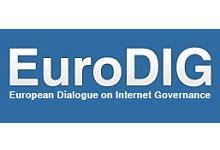Fake news – dissolving superstitions with media literacy
30 Jun 2021 08:30h - 09:30h
Event report
The WS10 session on ‘Fake News – Dissolving Superstitions with Media Literacy’ explored how media literacy and critical thinking can aid in avoiding misinformation and in the implementation of effective and preventive methods of disrupting misinformation in a brief period of time. While the Covid-19 pandemic has shed light on different media literacy problems, others, especially, conspiracy theories about vaccines, health news, and political news need more attention.
The discussants for this session were Mr Tamar Kintsurashvili (Media Development Foundation), Ms Tessa Jolls (Center for Media Literacy), Ms Sofia Rasgado (Development and Innovation Department of the Portuguese Cybersecurity Centre), and Ms Amalia Oganjanyan (DW Akadamie). The session was moderated by Ms Maia Simonishvili (National Parliamentary Library of Georgia).
Debunking content manipulation
The discussion opened with considerations of different ways to ‘debunk’ content manipulation. First, the importance of identification of manipulation was clarified; subsequently, the false, fabricated, or manipulated story can be deconstructed. An additional step is to track the transparency of stories. Transparency is crucial given that sometimes non-existent sources of information can be quoted by media outlets.
Harmful content and security
The panellists also reflected on the interplay between harmful content and security. It was stressed that manipulated content can contribute to violent clashes based on national, religious, or ethnic issues. In considering the possible consequences for security, it was pointed out that media literacy is addressed by both NATO and American diplomacy.
Interpretation of messages
Speaking on the interpretation of messages, it was emphasised that messages are determined not only by the content, but also by an audience-specific context. This means that different people understand media messages differently. The context itself is defined by all kinds of personal information such as knowledge, experiences, and attitudes. Media articles can also be biased because authors bring their own contexts. For this reason, it is important to understand the psychology of the audience and to equip them with critical thinking skills.
Media literacy training
Particular attention should be paid to youth and their media literacy training, since for the majority of young people the primary source of information is Youtube, a source that lacks journalistic curation.
Portuguese initiatives on media literacy were also shared in the discussion. Examples include a massive open online course on bullying and cyberbullying, and a media literacy citizenship curriculum framework that promotes the critical use of media, especially in the context of new technologies. Projects on media literacy have also been undertaken in the Ukraine and Kyrgyzstan. However, one of the biggest challenges for these projects is to attract people to take part in such activities.
Related topics
Related event

